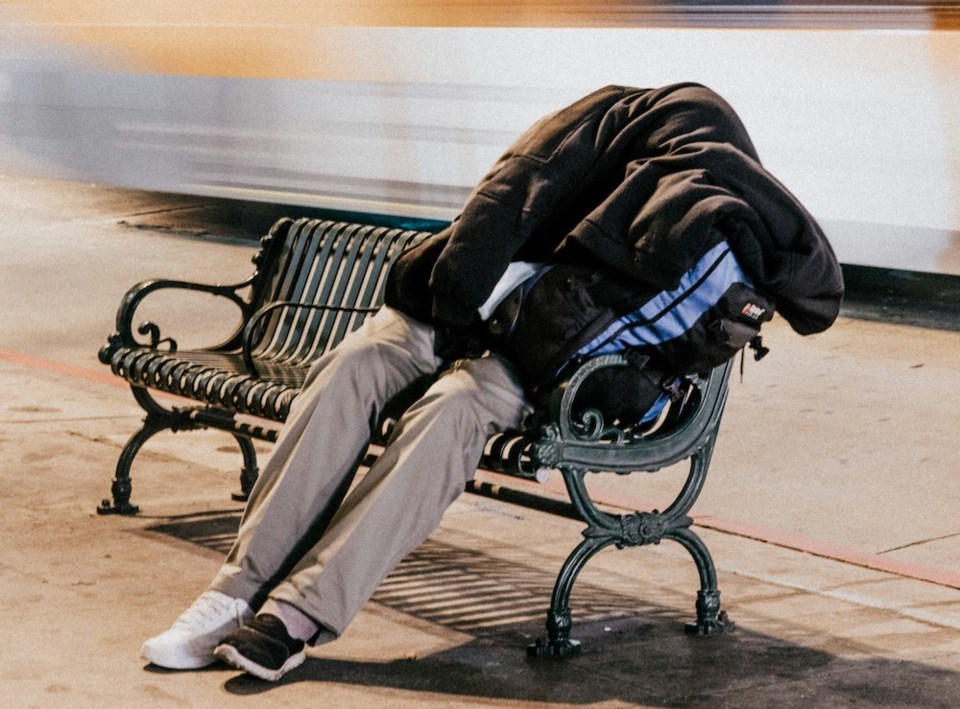COLD LAKE - As winter sets in, the Cold Lake John Howard Society has launched its seasonal programs to support the homeless, including the MAT (Mobile Assistance Team) program offering overnight shelter and meals from November to April.
Amid rising demand, the society has reported an influx of individuals from surrounding areas like Bonnyville and St. Paul, where shelters are currently unavailable. Program Manager Leona Heisler says the organization is stretched thin, addressing not only homelessness but complex issues such as addiction and mental health, which lack sufficient resources in Cold Lake.
The Cold Lake John Howard Society also feels the strain of providing services to people from surrounding areas that lack shelters.
“We have been getting people pretty much dumped here from other areas like Bonnyville and St. Paul that don't have a shelter open right now, a men’s shelter,” noted Heisler.
The John Howard Society works to assist individuals struggling with homelessness, mental health issues, and addiction.
“We provide services to people who are homeless. We provide an outreach program during the day from 9 a.m. to 2 p.m., where we help people work on getting out of their situations,” said Heisler.
The Cold Lake John Howard Society offers two distinct phases of service each day. During the morning and early afternoon, the organization operates as a warming center, providing breakfast, lunch, and essential daytime support.
After closing briefly, the shelter reopens at 7 p.m. for the MAT program until 7 a.m., offering dinner, overnight beds, and support through the night.
The MAT program has gender separated sleeping arrangements that are inclusive of both cisgender and transgender individuals. Additionally, single-stall washrooms ensure privacy for all guests, according to information from the Cold Lake John Howard Society.
Beyond meals and shelter, the Cold Lake John Howard Society also offers resources for personal care, such as showers and laundry.
“People that are living rough right now do access our services, our meals and the showers and laundry facilities and outreach staff and that as well,” Heisler said.
The challenges faced by those who rely on the Society’s services are often compounded by issues such as mental health and addiction.
“We don't really have a homeless problem. We have a meth and addictions and mental health problem,” Heisler said.
These intertwined issues highlight the need for comprehensive support services, which are largely unavailable in Cold Lake.
“Most of our individuals have some sort of disability, FASD or something else - or mental health. And so, it's hard to move those people forward and we really don't have any services for mental health in this area.”
The situation becomes even more complex due to limited resources for mental health and addiction treatment, with detox and treatment programs often involving long waits.
“Detox and treatment, like I said, is six to eight weeks, so that's a long wait,” Heisler shared.
For some, this wait can derail the process, as individuals may change their minds or lose their placement.
“When their time comes, when they get a spot, then they've changed their mind and think they don't need detox or treatment,” she stated.
This added influx includes seniors who may face added risks in a shelter environment.
“We have had quite a few seniors here, where it's really not safe to have, you know, somebody with a walker or wheelchair,” she said.
Heisler acknowledged that having more facilities and support services in Cold Lake dedicated to addiction treatment would make a significant difference.
Beacon of hope
Amid all the challenges, the community’s generosity has been a beacon of hope.
“The community is actually very good at helping with things like donations,” Heisler acknowledged.
With winter in full swing, the Society is seeking additional winter clothing and essentials.
“I'm looking for winter clothing, boots, coats. With our mentally ill individuals, some of them have already gone through three coats. They've left some places. They show up with nothing on their feet already. So, we go through a lot of that stuff,” she explained.
Donations can be dropped off at the Cold Lake John Howard Society.
Every person seeking assistance receives tailored support.
“During the day, we do the intake to see what they need help with. And we go from there,” Heisler shared. This approach helps ensure that individuals can work toward bettering their situation within the limitations of available resources.
When asked about the importance of the John Howard Society to the Cold Lake community, Heisler highlighted that without the Society’s support, many individuals would have nowhere else to turn.



